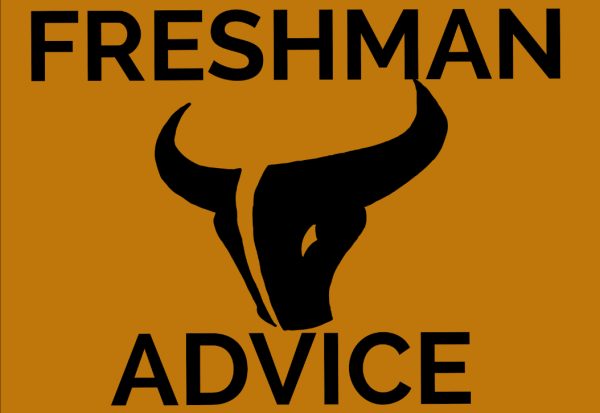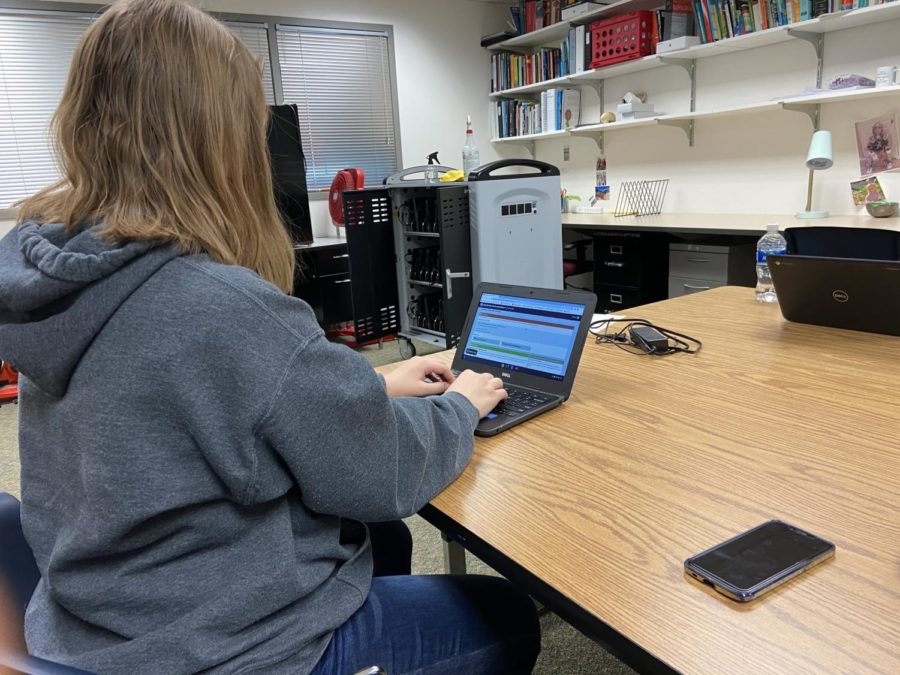The college application process can feel strenuous, but it doesn’t have to be
Whether you’re applying to a university, community college, or some other post secondary option, here are a few ways you can learn from my mistakes
It’s best to get started on college admissions as early as possible.
The college application process is long and confusing, especially if you don’t have any older siblings in college to show you the way. This is the case with me, and I felt like I had no idea what I was doing the whole time — which was completely true. I really did have no idea what I was doing, so I’ve written up some tips here for those who will be applying to college soon so that you won’t be as lost as I was.
Disclaimer: Not every college application process is the same. I applied to over ten colleges, and many of them were higher on the prestige spectrum, so my college application process was abnormally strenuous. Don’t freak out too much if you’re applying to only a few colleges or avoiding the tougher ones, but hopefully, my tips are still helpful for you.
Get an idea of what you want to do with your life.
Maybe you stuck to your childhood dream of becoming a veterinarian over the last ten years or so, or like me, you might’ve changed your mind on your future career a million times. But colleges don’t care how indecisive you are. If I remember correctly, every single college I applied to asked me what majors I was interested in, and quite a few asked me why I picked what I picked.
Some schools (ie. The George Washington University) have you apply to a specific college (ie. Elliott School of International Affairs) within the university, and they might have you write another essay about why you want to study in that college.
So you should figure out what you want to study. You don’t have to come up with the subject of your doctoral thesis; you just need to narrow it down to your top three majors, and you can mark one “undecided” if you’re really struggling. And not every college will offer every major you’re interested in, so it wouldn’t hurt to brainstorm extra ideas.
Think about what you’re really passionate about and what would help you have a successful career (unless you plan on marrying rich or living frugally). Research what majors or study areas cover the subjects you’re interested in and fit the career you want. You can find a lot of online guides, like this one from UC Berkeley, that provide helpful information on career prospects for different majors.
For most colleges, your initial major decisions aren’t final, so don’t worry too much about what you choose now. But you should still pick a few to put on applications and come up with some concise reasons why for writing questions. “I vibe with political science” probably won’t cut it.
Brainstorm your identity.
You should also be prepared to answer a lot of questions about your personality, your favorite activities, your personal growth, your greatest accomplishments, etc. You want to show off your best facets and puff up your less-exciting characteristics and actions. For example, if you went on a humanitarian trip to a foreign country and saved thousands of poor orphans from starvation and exposure, you should mention that to the colleges you’re applying to.
But if you haven’t done anything very grand, talk up the little things. I’m not telling you to lie, but think of your life as a text you need to write an inspiring essay about. Connect something that you did or something that happened to you to a larger theme in life. For example, if you taught yourself how to make really yummy pies for your friends, connect that to your passion for learning or your desire to make other people happy. College admissions questions are a vessel for communicating your experiences, and those experiences are a vessel for your character.
Come up with a good list, on paper or just in your head, of the most impactful experiences of your time in high school that you can use for college admissions. You shouldn’t use the same “oh I saved those orphans” for every single question.
Don’t freak out too much about college interviews.
Some colleges have the option, a few the requirement, to interview with an alumni. Requirements and expectations vary by school, but in general, the point of the interview is for the college to get to know you. They’re pretty chill.
However, it doesn’t hurt to be prepared. Again, brainstorm your identity and what points about yourself you really want to push. Come up with a list of questions you want to ask — this might be your only opportunity to talk with someone who really knows what your potential college is like. Make sure you know enough about the college to not ask stupid questions like, “What was it like living near San Francisco when you attended Harvard?”
But keep in mind that you aren’t the only one trying to make a good impression during your interviews. Alumni also want you to like them and their school so that you’ll enroll. That doesn’t mean you should be at all arrogant during your interviews, but you shouldn’t feel like you’re being interrogated either. Be confident! Yay!
Do everything as early as you can.
There’s a lot you need to do and relatively little time to do it. Most college applications are due at the beginning of January, but some have earlier deadlines for scholarships or free applications. In the weeks leading up to your deadlines, you’ll be writing essays and getting transcripts and letters of recommendation, so you should get all of the easy stuff out of the way first. If you’re applying through Common App (that’s what I did, I highly recommend it), you can start your application over the summer. Most of the Common App questions are super easy to answer, so don’t procrastinate them. Just get them over with.
You should also be thinking about where you want to go and narrow down your college list as early as possible. I decided to apply to Washington and Lee University literally two days before their deadline, and those two days were incredibly stressful. Don’t be me. Decide on your college list early.
Another thing to not procrastinate is asking for transcripts and letters of recommendation. You should give your counselor about two weeks to send your transcripts. You should give at least that amount of time for letters of recommendation, too. Most of the colleges I applied to asked for one letter from a counselor and two from teachers.
Once your application is complete, submit it at least five hours before the deadline in case you have WiFi issues. For Common App, applications are due midnight YOUR LOCAL TIME on the due date. If you submit your application past midnight Eastern Time, Common App will mark it as late, but don’t worry: you can still submit, and your application is still on time as long as it’s before midnight in your time zone. If your WiFi issues keep you from submitting on time, just email the admissions office at the college you’re applying to and tell them what happened — they’ll hopefully be understanding and accept your application.
But in general, do everything super super early to avoid stress and tardiness. Your future self will thank you.
Sign up for college search services, and check your email for admissions help.
You can sign up to connect with colleges through College Board, and there are probably a ton of other search services out there that I just don’t know about.
However, beware of the volume of emails you will likely receive after signing up for this sort of thing. My inbox rose from around 500 to a whopping 7,000 emails in the months after I signed up, largely due to college mail and my poor organization skills. To thin out your emails, decide what colleges you definitely don’t want to go to and unsubscribe from them.
But for the colleges you are interested in, keep an eye out for helpful seminars, program information, and application opportunities. A lot of colleges will hold question-and-answer seminars with admissions counselors where you can learn more about them and show them you’re interested. You will also likely receive information about specific academic and extracurricular activities at colleges. But some of the most immediately helpful emails are those giving access to priority applications and application fee waiver codes. If you did well on the PSAT and colleges know you did, the less-competitive schools will put extra effort into recruiting you by offering you special application perks, and chances are, you’ll only hear about these perks through email.
DO NOT USE YOUR SCHOOL EMAIL FOR COLLEGE STUFF. Your school email is gonna die before you’re done with college stuff. Use your personal email.
Stay on top of your college essays.
Pretty much every college I applied to required a few short essays (50 to 300 words) and/or a longer college-specific essay (400 plus words) in addition to the personal essay (AKA personal statement) on the Common App. If you’re applying to a lot of colleges, all of those essays quickly add up.
An essay strategy that worked well for me was putting every question I had to answer, its college, and its word count into one big document. I answered most of the questions within the document and then copy and pasted them into Common App when I was done. Because you can only look at one college at once in Common App, this master document made it easier for me to keep track of what I had left to do. And since many colleges ask similar questions (ie. “What draws you to your top choice in majors?” or “Elaborate on one of your extracurricular activities.”), you can use the same answer for multiple colleges or tweak it a little depending on the question and word count.
Essays are another thing you should do super early because they are the worst to do last minute, and you want to have enough time for people to look over your writing and give feedback. For shorter essays, reading them to your parents or a smart friend would probably be enough, but for longer, more important essays, try to get multiple opinions and ask an English teacher for their thoughts.
Stay organized.
Applying to college is complicated, and there are a lot of things you need to keep track of: due dates, rec letters, writing supplements, which schools have therapy dogs, etc. It’s really easy to lose track of important little details, especially if you’re applying to several schools in different places.
To stay organized, I kept a list of my final choices in colleges with their due dates on my desk until I finished applying, and like I said before, I put all of my writing questions in one document. I did all of the small questions on my applications (ie. alumni information) way before everything was due and all at once, but if you put that part off or spread it out over a few weeks, you should make more checklists for that stuff to avoid forgetting anything. If you want to go the extra mile, make yourself a big spreadsheet to list every little thing you need to finish.
After I submitted my applications, I received emails from my colleges with applicant portal login information. Applicant portals are where you can see if colleges have received your application materials, apply for financial aid, and eventually receive a decision. Most of them have a similar set-up, and most let you create your own password.
This probably isn’t the best advice in terms of cyber security… but I recommend using the same password for all of your college portals to make remembering easier.
I also bookmarked all of my college portals in my web browser and put them in a “College” folder so that I can easily open all of them at once when I want to check that everything’s in place. I also have a “College” folder in my email inbox for important college emails.
In general, just make sure you have a nice system of organization in place that works for you while going through this process. It would really suck if you forgot one little thing that kept you from getting into Harvard or something, so stay organized to keep that from happening.
KEEP YOUR TAX FORMS!!!
I didn’t keep my tax forms! I suffered! I cried! Don’t be like me! Keep your tax forms!
If you’re going to apply for financial aid, you’ll need to fill out a ton of forms, including the FAFSA (Free Application for Federal Student Aid) and a CSS Profile. These online forms will ask for a ton of information about your family’s financial situation, so make sure you and your parents are well informed on that subject. Another form-ish thing is the IDOC (Institutional Documentation Service). The IDOC is a College Board service where you’ll upload your tax forms, including W-2s, 1099s, and 1040s. Then those forms are sent to your colleges. Some schools don’t use the IDOC, so you’ll need to upload your forms directly to their own financial aid site.
Either way, you need to make sure you actually have those forms! If you have a job and/or pay taxes, keep those papers! You should do that for your whole life! So if you — like me — were never told that, now you know!
I hope these tips will alleviate your admissions-related suffering. If you have any more questions, you can contact me or ask someone else who’s been through this process. If you can, go to your friends that are currently in college because they’ll probably have the most complete and relevant information. And of course, never be afraid to reach out to the admissions officers at the colleges you’re applying to. Good luck!
Your donation will support the student journalists of Mead High School. Your contribution will allow us to purchase equipment and cover our annual website hosting costs.

Adah McMillan is a Senior. She enjoys reading, drawing, eating candy, playing the piano, listening to musicals, and being right. She is involved in choir, NHS, the MHS Book Club, and SVVSD's Innovation Center. She is excited to do more work in The Mav this year and make the website as perfect as it can be.
You can contact her at mcmill.adah22@svvsd.org.











Damon • Mar 12, 2021 at 11:04 am
Great article! Applying for college seems very intimidating, but this article distills it down to the most important steps and principles. Good luck Mavs!